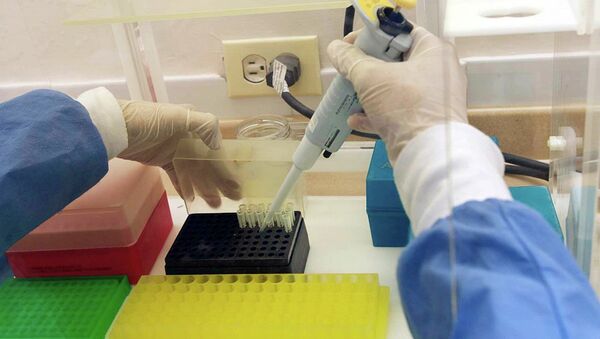According to a study published in Science journal last week, the scientists have developed a method of finding unique markings within a tumor allowing the immune system to target the disease.
"Essentially the new study looked into why some patients are responding fantastically well to novel immunotherapy approaches which essentially stimulate an individual patient’s immune system to attack their own cancer," Dr Marco Gerlinger, Oncology expert and team leader in the new Centre for Cancer and Evolution at The Institute of Cancer Research, told Radio Sputnik.
As the researchers sought to understand why some patients respond well to the treatment while others don’t, they’ve discovered that if the patient’s cancer mutations are heterogeneous, whereby the tumor continues to acquire mutations and expands, then the therapy falls apart and doesn’t work anymore.
"And this is really the exciting novelty, that they’ve found one group that does respond and a marker, a way to identify a group that does not respond well," the doctor explained.
Using this insight, Gerlinger said, may lead to a next this may lead to a next set of development in immunotherapy to help boost the immune systems of patients where it can be effective and perhaps even to provide some benefits to those who don’t exhibit a positive reaction to this new treatment.
Nevertheless, it is still too early to open the proverbial bottle of champagne, the doctor pointed out, as it will take time to test and to actually implement this new discovery.
"We don’t know yet whether this will lead to therapeutic benefit and efficacy in the clinic because this is the first hypothesis," Gerlinger said.
According to him, it will take at least a couple of years to determine whether this new approach will be successful or not.


